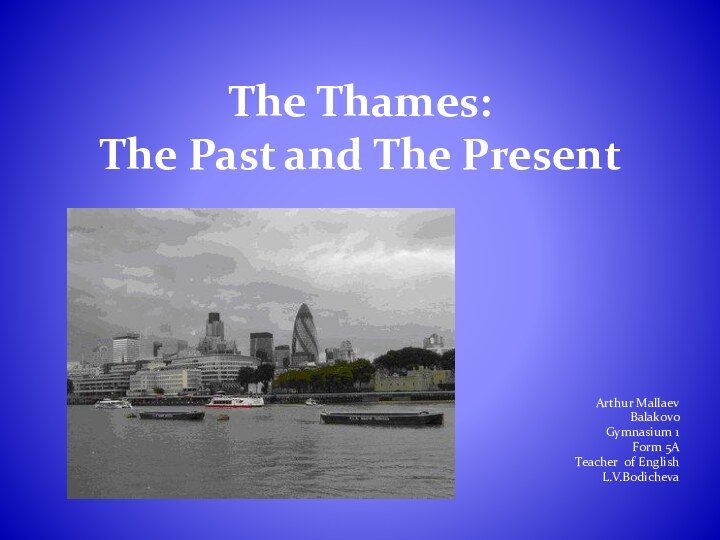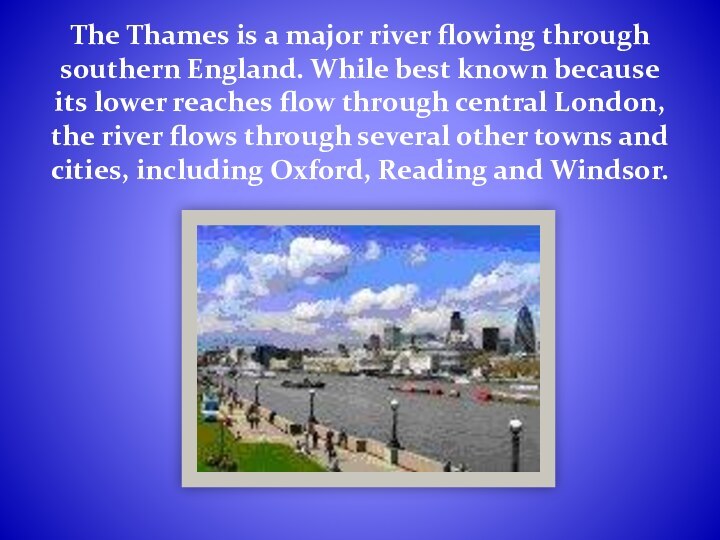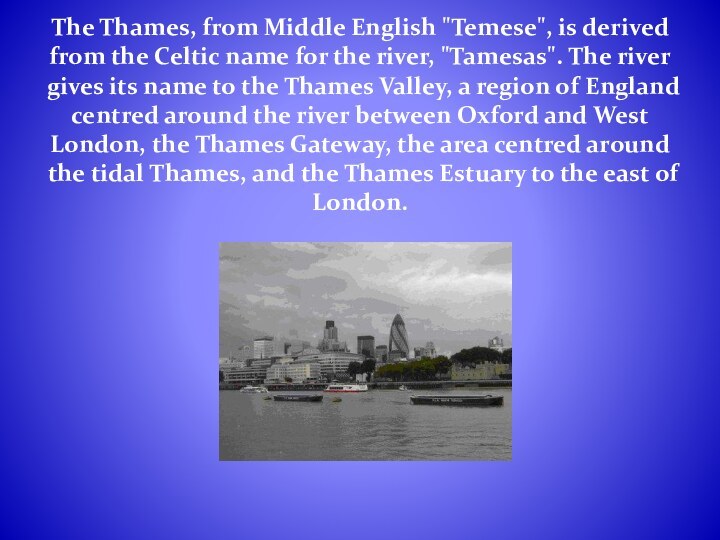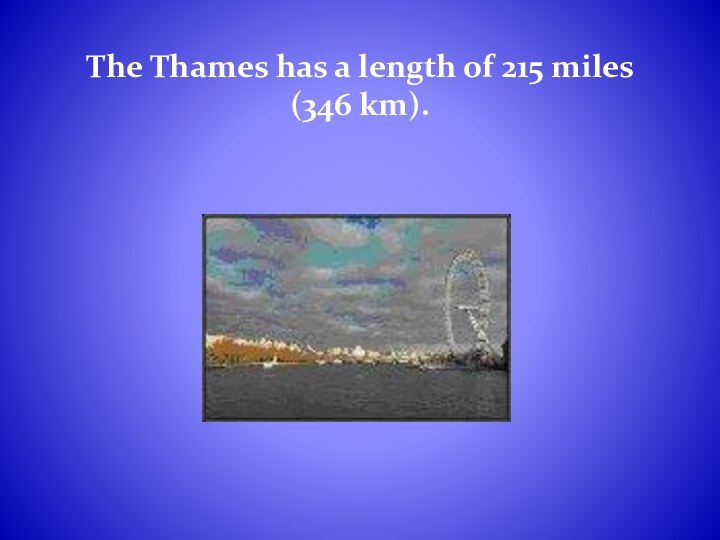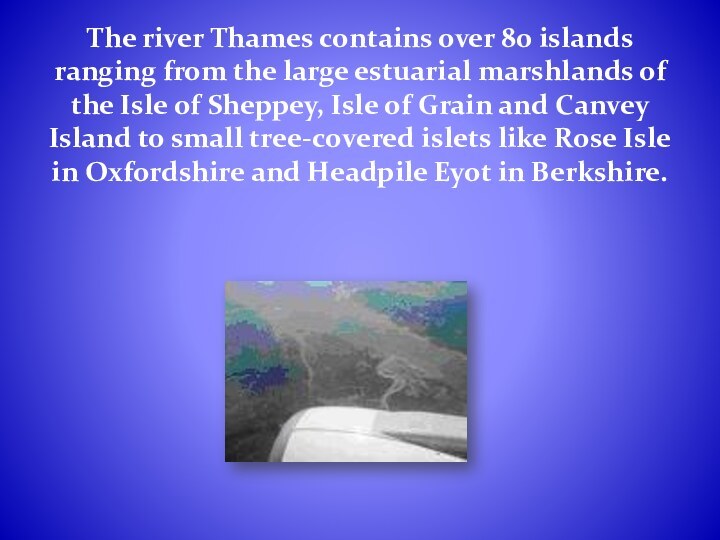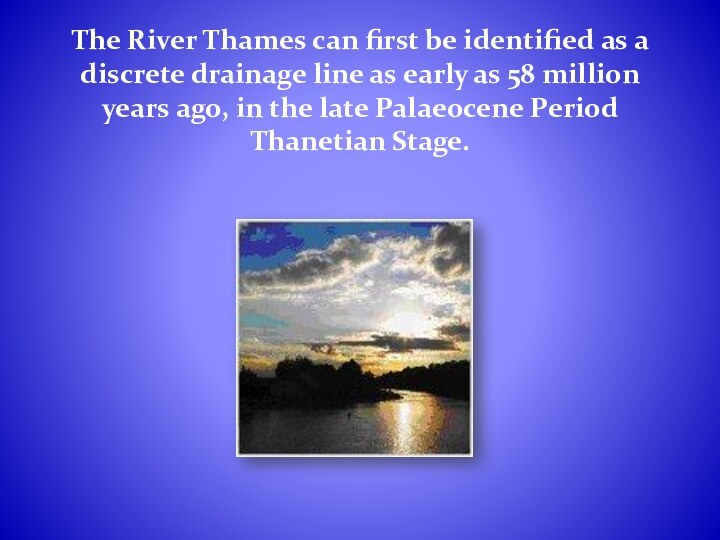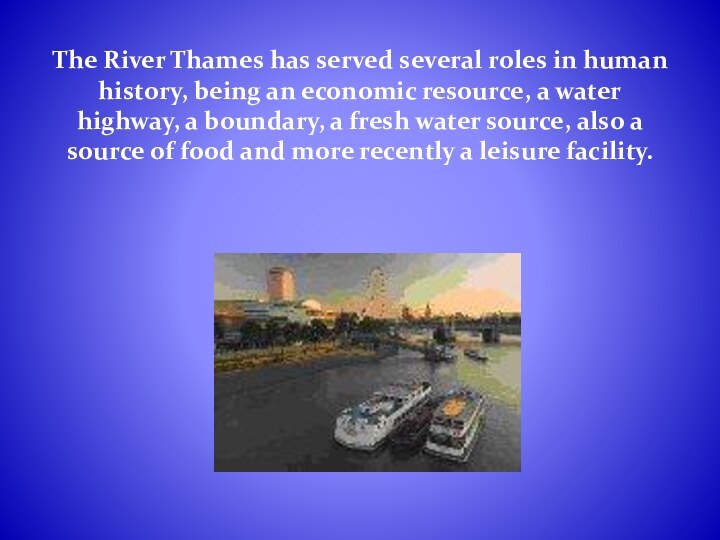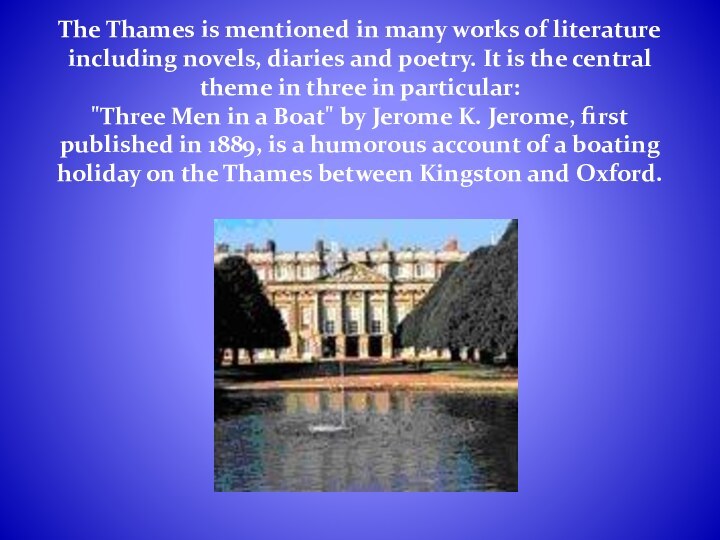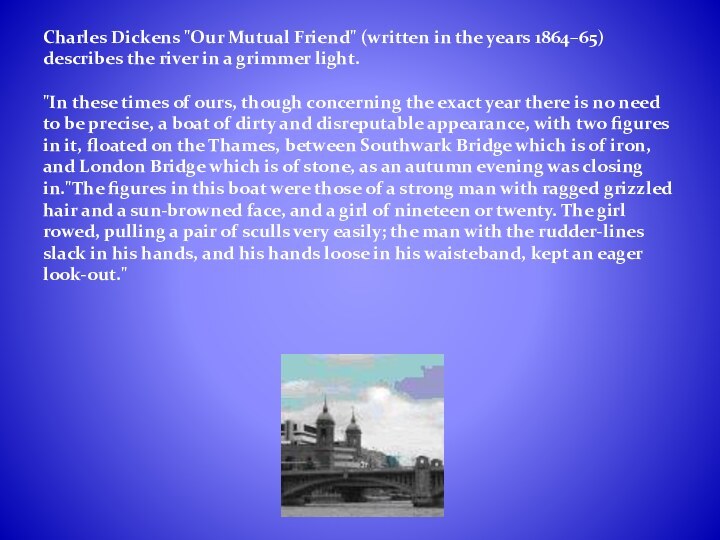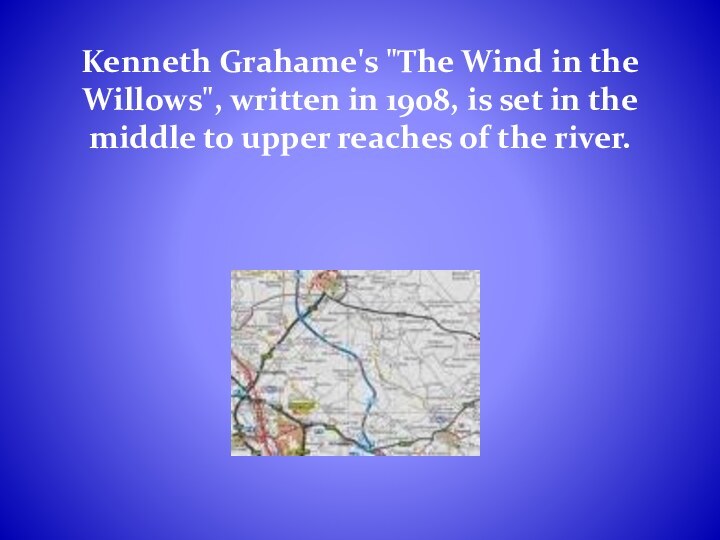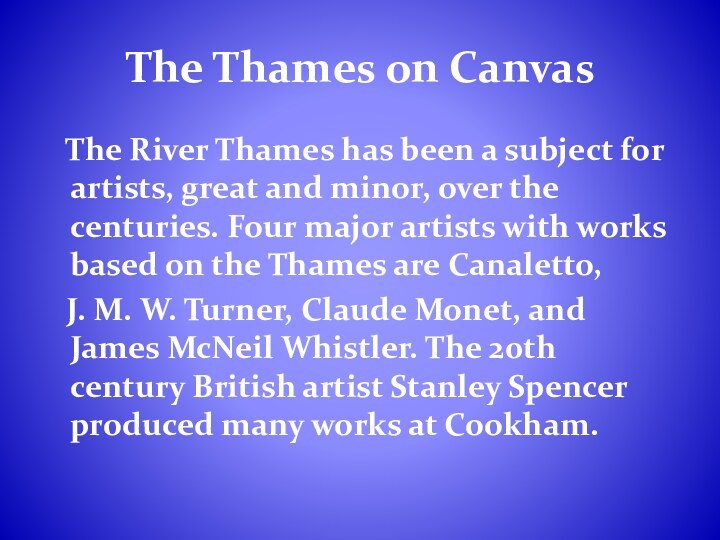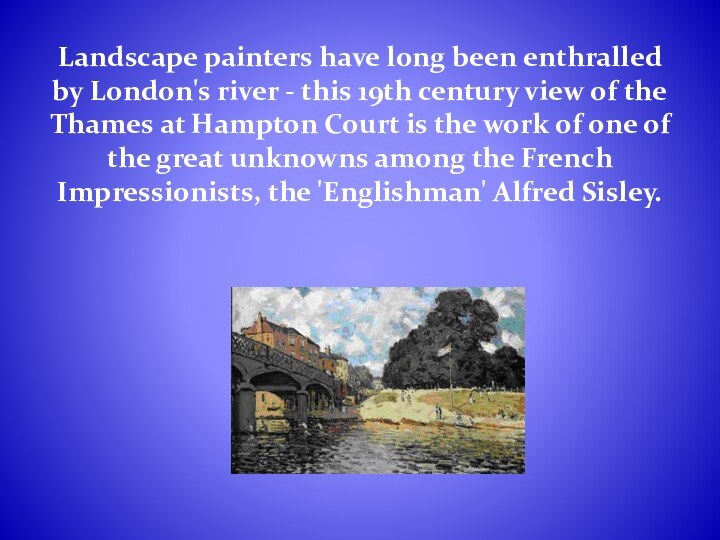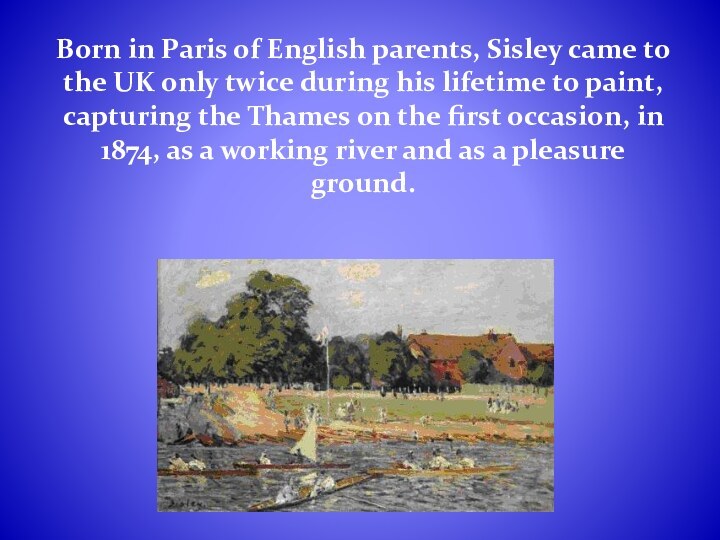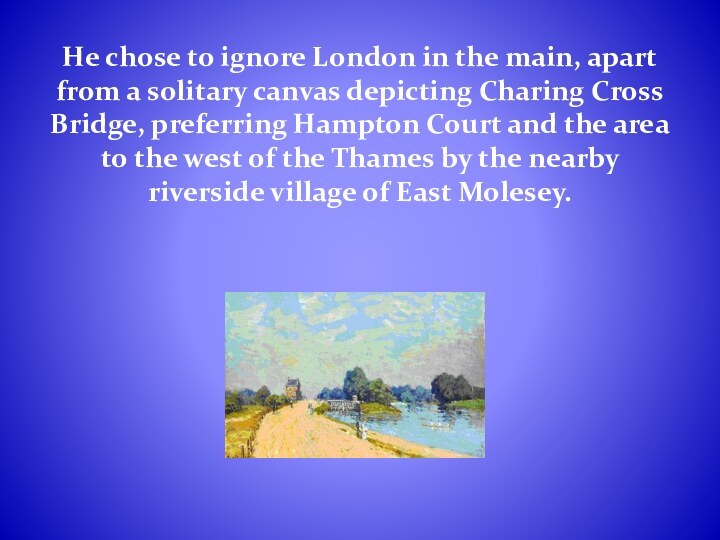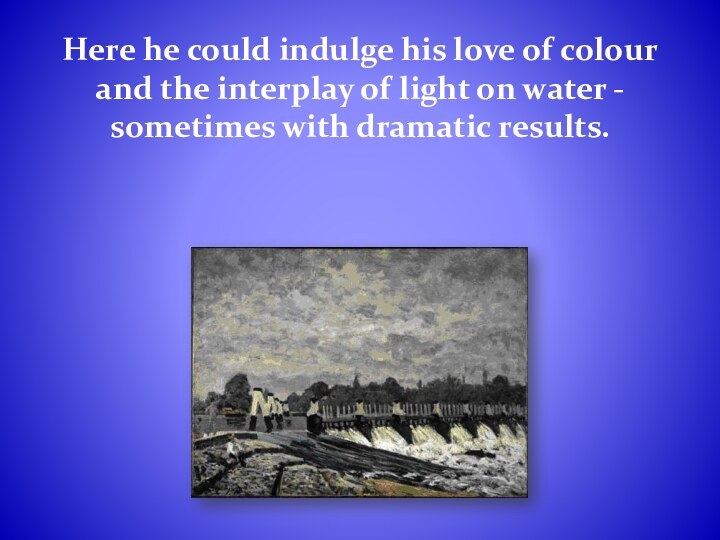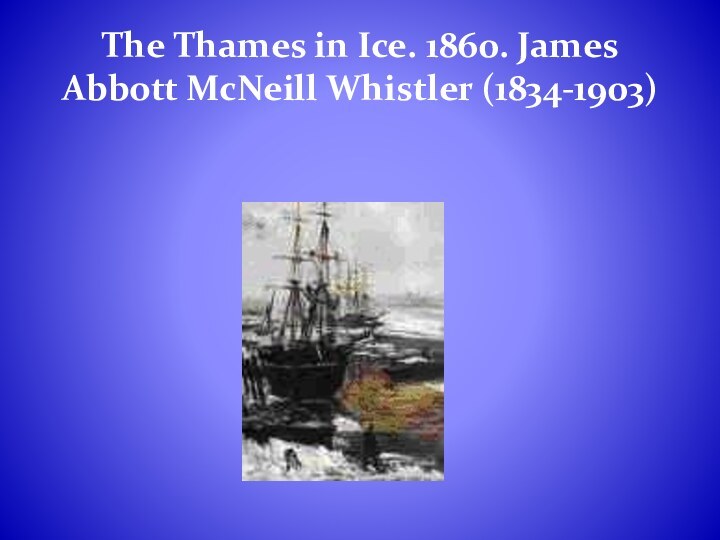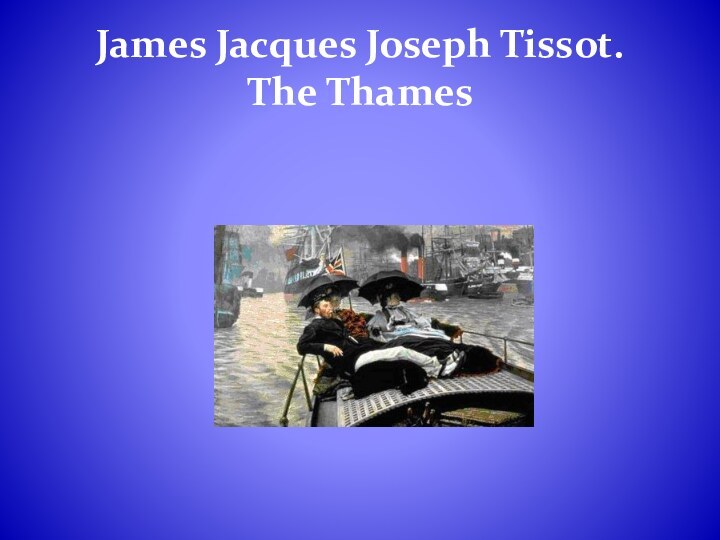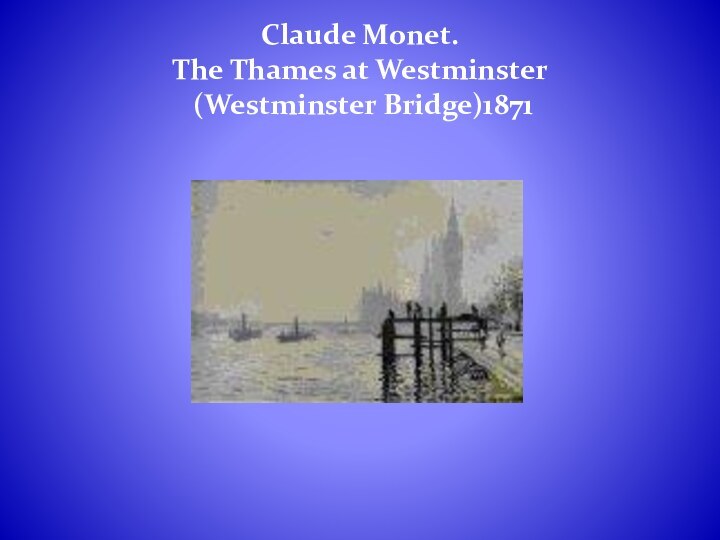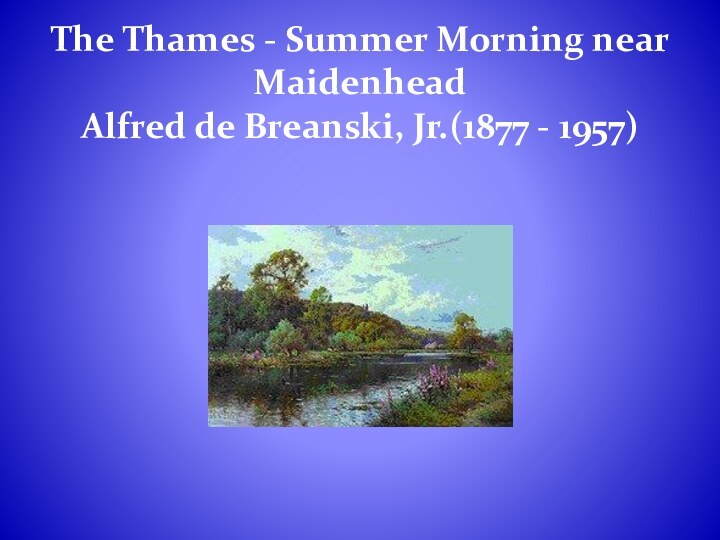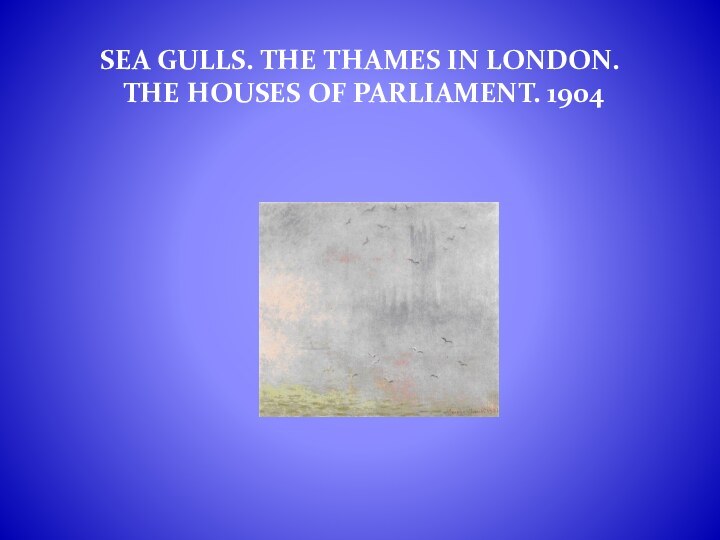Слайд 2
William Wordsworth
On Westminster Bridge
Ne'er saw I, never
felt, a calm so deep!
The river glideth at his
own sweet will.
Dear God! The very houses seem asleep;
And all that mighty heart is lying still!
Слайд 3
The Thames is a major river flowing through
southern England. While best known because its lower reaches
flow through central London, the river flows through several other towns and cities, including Oxford, Reading and Windsor.
Слайд 4
The Thames, from Middle English "Temese", is derived
from the Celtic name for the river, "Tamesas". The
river gives its name to the Thames Valley, a region of England centred around the river between Oxford and West London, the Thames Gateway, the area centred around the tidal Thames, and the Thames Estuary to the east of London.
Слайд 5
The Thames has a length of 215 miles
(346 km).
Слайд 6
The river Thames contains over 80 islands ranging
from the large estuarial marshlands of the Isle of
Sheppey, Isle of Grain and Canvey Island to small tree-covered islets like Rose Isle in Oxfordshire and Headpile Eyot in Berkshire.
Слайд 7
The River Thames can first be identified as
a discrete drainage line as early as 58 million
years ago, in the late Palaeocene Period Thanetian Stage.
Слайд 8
The River Thames has served several roles in
human history, being an economic resource, a water highway,
a boundary, a fresh water source, also a source of food and more recently a leisure facility.
Слайд 9
There are several watersports prevalent on the Thames,
with many clubs encouraging participation and organising racing and
inter-club competitions.
Слайд 10
The Thames is mentioned in many works of
literature including novels, diaries and poetry. It is the
central theme in three in particular:
"Three Men in a Boat" by Jerome K. Jerome, first published in 1889, is a humorous account of a boating holiday on the Thames between Kingston and Oxford.
Слайд 11
Charles Dickens "Our Mutual Friend" (written in the
years 1864–65) describes the river in a grimmer light.
"In
these times of ours, though concerning the exact year there is no need to be precise, a boat of dirty and disreputable appearance, with two figures in it, floated on the Thames, between Southwark Bridge which is of iron, and London Bridge which is of stone, as an autumn evening was closing in."The figures in this boat were those of a strong man with ragged grizzled hair and a sun-browned face, and a girl of nineteen or twenty. The girl rowed, pulling a pair of sculls very easily; the man with the rudder-lines slack in his hands, and his hands loose in his waisteband, kept an eager look-out."
Слайд 12
Kenneth Grahame's "The Wind in the Willows", written
in 1908, is set in the middle to upper
reaches of the river.
Слайд 13
The Thames on Canvas
The River
Thames has been a subject for artists, great and
minor, over the centuries. Four major artists with works based on the Thames are Canaletto,
J. M. W. Turner, Claude Monet, and James McNeil Whistler. The 20th century British artist Stanley Spencer produced many works at Cookham.
Слайд 14
Landscape painters have long been enthralled by London's
river - this 19th century view of the Thames
at Hampton Court is the work of one of the great unknowns among the French Impressionists, the 'Englishman' Alfred Sisley.
Слайд 15
Born in Paris of English parents, Sisley came
to the UK only twice during his lifetime to
paint, capturing the Thames on the first occasion, in 1874, as a working river and as a pleasure ground.
Слайд 16
He chose to ignore London in the main,
apart from a solitary canvas depicting Charing Cross Bridge,
preferring Hampton Court and the area to the west of the Thames by the nearby riverside village of East Molesey.
Слайд 17
Here he could indulge his love of colour
and the interplay of light on water - sometimes
with dramatic results.
Слайд 18
The Thames in Ice. 1860. James Abbott McNeill
Whistler (1834-1903)
Слайд 19
James Jacques Joseph Tissot.
The Thames
Слайд 20
Claude Monet.
The Thames at Westminster
(Westminster Bridge)1871
Слайд 21
The Thames - Summer Morning near Maidenhead
Alfred de
Breanski, Jr.(1877 - 1957)
